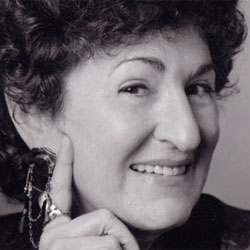2
We lived in many houses and left remnants of memory
in every one of them: a newspaper, a book face-down, a crumpled map
of some faraway land, a forgotten toothbrush standing sentinel in a cup –
that too is a memorial candle, an eternal light.
Notes on the Poem
This snippet comes from Yehuda Amichai's poem "Houses (Plural); Love (Singular)", translated by Chana Kronfeld and the late Chana Bloch, from the 2001 Griffin Poetry Prize shortlisted collection Open Closed Open. Brief and plainly stated, how does it manage to be so moving? The excerpt establishes intimacy immediately, with the words "left remnants of memory in every one of them" conveying a rueful, confessional and wistful tone that you would only share with those with whom you are close. Swiftly, the poem excerpt moves from intangible "remnants of memory" to objects that are poignant concrete examples of remembered feelings. The "book face-down" suggests interruption or distraction. The adjective "crumpled" could mean frustration or despair, and coupled with "map of some faraway land" could connote longing. What do those objects say to you? Then there is the humble toothbrush, at first described as possibly unimportant because it is "forgotten", but then transformed into something vigilant ("standing sentinel"), then steadfast ("a memorial candle"), then everlasting ("an eternal light"). Whether you interpret that last metaphor as expressly religious or more generally symbolic, it is breathtaking how beautifully and succinctly Amichai as translated by Kronfeld and Bloch sweeps out from the personal to the universal.
